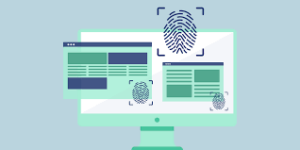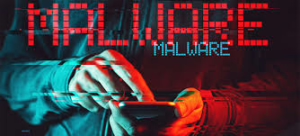You check your email and see an update about a new bank account in your name. Or you could view your checking account statement and find unauthorized debit card transactions listed. Whatever the case, being the victim of a banking scam is a terrible feeling.
Bank scams are common, and with the increased use of technology and digital-savvy fraudsters, the problem is getting worse. In fact, the Federal Trade Commission (FTC) reported that consumers lost more than $10 billion to fraud in 2023.

Despite the prevalence of fraud, you can prevent it from happening to you by learning how common bank scams work and taking steps to protect your information.
Common banking scams
Bank scams can take many forms, and criminals are adept at leveraging new technology and trends. These are some of the most common bank scams happening in 2024:
1. Faux bank websites
Some scammers create legitimate-looking bank websites with attractive interest rates and low fees that appeal to customers looking for a new bank account. Or they create phoney copies of established banks to trick you into attempting to sign in to your account. In either case, the goal is to get you to enter your personal information, including your bank login or Social Security number, which they then use to steal your money or identity.

What to do: You can verify a bank’s legitimacy through BankFind.
2. Malicious apps or extensions
Apps and browser extensions can be helpful tools. But before agreeing to a new app or extension’s terms, be sure to read the fine print and only download reputable apps. Some apps and extensions are malicious, designed to track your device usage and access your passwords and personal details.
In the digital age, where convenience often trumps caution, it’s essential to be vigilant about the tools we employ. Consider the world of apps and browser extensions—a realm filled with potential yet fraught with peril. These programs can indeed enhance our online experience, but they can also harbour hidden dangers. Before you click “agree” on a new app or extension, take a moment to delve into the fine print. It’s crucial to download only those applications that come from reputable sources. Unfortunately, there are malicious entities out there, lurking within seemingly innocuous software, intent on tracking your online behaviour and pilfering your passwords and sensitive personal information.

So what should you do? Exercise caution before downloading any free apps or extensions that catch your eye. Prioritize applications from well-known financial institutions, as their credibility is often a safeguard against deceit. Additionally, bolster your defences with robust anti-virus and anti-malware software to shield your devices from potential threats.
Now, let’s turn our attention to another insidious form of deception: fraudulent communications. We’ve all been there—receiving an alarming phone call or email that claims, “Your account has been compromised; contact us immediately to verify your information.” The urgency is palpable, and if you’re you’re communicating via phone or text, the caller ID may even appear authentic. However, these messages are often nothing more than elaborate ruses crafted by scammers impersonating your bank in a bid to extract your confidential banking details.
What’s the best course of action in such a scenario? While the temptation to act swiftly can be overwhelming, resist the urge to respond directly to that email, text, or call. Instead, take a step back and navigate to your bank’s official website using a separate browser window. Reach out to their customer support using the verified contact information provided on their site to confirm whether any genuine issues exist regarding your account.

Lastly, let’s not overlook the lurking threat of check washing. In an era where electronic payments reign supreme, one might think check fraud is on the decline; however, statistics tell a different story. The Financial Crimes Enforcement Network (FinCEN) reported that incidents of check fraud nearly doubled between 2021 and 2022.
This devious scheme involves criminals pilfering checks from mailboxes or post office drop boxes. They then employ chemicals to erase the original ink, effectively transforming a legitimate check into a blank canvas that they can fill in with whatever amount they desire.
To protect yourself from this type of fraud, consider adopting electronic payment methods whenever possible. If you must send a check through the mail, make it a point to drop it off in person at the post office or use an in-lobby drop box. When writing out the check, opt for a pen with permanent ink to make it harder for anyone to alter. And don’t forget to keep a close eye on your bank statements at least once a month; vigilance is key. If you spot any unauthorized transactions, act promptly to address them before they escalate.
In this ever-evolving landscape of digital threats, staying informed and proactive is your best defence.
Employment Scams: A Cautionary Tale
In a world where the allure of remote work has captured the attention of countless individuals, the rise of employment scams has become a disheartening reality. Picture this: you’re you’re scrolling through job listings, excited about the prospect of working from home, when you come across an enticing offer. The “employer” seems perfect, but soon enough, they request that you move money in and out of your bank account, insisting it’s to facilitate payments to vendors. At first, it might sound reasonable—after all, they are just trying to streamline operations. However, once they gain access to your account details, they can swiftly siphon off your hard-earned savings without a trace.

So, what should you do to protect yourself? Remember that legitimate companies have their own financial systems in place; they don’t need to rely on employee accounts for transactions. Take the time to research the organization—websites like Glassdoor and the Better Business Bureau can be invaluable resources in determining if a company is trustworthy.
Unauthorized Accounts: A Hidden Threat
In another unsettling scenario, imagine discovering that someone has used your details to open a bank account in your name. At first glance, this unauthorized account might seem trivial, but it poses serious risks. Unscrupulous individuals could write checks from it or apply for loans and credit cards, tarnishing your reputation in the process.
To safeguard against such threats, consider employing multi-factor authentication when accessing your bank accounts. This added layer of security—requiring both a password and a verification code sent to your phone—makes it significantly more challenging for criminals to infiltrate your financial information. If you suspect your data has been compromised, it’s wise to obtain a report from ChexSystems. This agency specializes in providing insights about deposit accounts linked to your name. If you uncover any unauthorized accounts, act quickly and contact the respective banks to close them down.
Spotting Bank Scam Red Flags: An Ongoing Battle
As we navigate this increasingly digital landscape, fraudsters continuously adapt and refine their tactics, making some bank scams particularly sophisticated and convincing. However, sure warning signs can help you identify a potential scam before it’s too late.

One major red flag is a sense of urgency. Scammers thrive on creating panic and confusion, compelling you to act without taking the time to think things through. Suppose someone pressures you to make an immediate decision or send money without allowing you the chance to conduct any research or consider their request carefully. In that case, that’s a glaring indication of deceit.
In this ever-evolving battle against fraud, staying informed and cautious is your best defence. Always trust your instincts and take the necessary steps to protect yourself in a world where scams lurk around every corner.
In the world of finance, it’s crucial to tread carefully, especially when it comes to handling your hard-earned money. Imagine you’re going about your day when suddenly you receive a request for funds. It’s essential to remember that legitimate banks and employers will never ask you to send money or share your banking credentials. If you encounter a company that demands such sensitive information, it’s a red flag—best to distance yourself from them.
Then, there are those peculiar payment methods that raise further alarms. Scammers often prefer receiving payments through unconventional means like gift cards or cryptocurrencies. Why? Because these methods offer a level of anonymity that traditional credit card transactions or bank transfers do not. Once you send those funds, they are nearly impossible to reclaim, leaving you vulnerable and at their mercy.

Now, let’s say you find yourself in an unexpected situation where your bank, credit union, or a wire transfer service reaches out to you—be it through a phone call, text, or email. This sudden communication should set off warning bells. Before taking any action, like clicking on links or opening attachments, take a moment to open a new browser window. Please search for your bank’s official website and contact them using the number listed there. It’s always better to be safe than sorry.
But what if you’ve you’ve already fallen prey to a banking scam? First and foremost, don’t let panic take over. There are steps you can take to regain control and protect yourself from further harm.
One of the best resources is the Federal Trade Commission’s Identity Theft Recovery Plan. This online tool allows you to input the details of your predicament, and in return, it crafts a tailored recovery plan just for you. This plan provides clear, step-by-step guidance on what actions to take next—from reaching out to your bank to filing a police report.
Speaking of banks, if you suspect that your information has been compromised or notice any unauthorized transactions, reach out to your bank or credit union without delay. Their customer service team is equipped to assist you in securing your account—whether that means closing it down, freezing your debit card, or disputing any fraudulent activity that may have occurred.
While it might not always be required, filing a police report can be beneficial. Some financial institutions may request this document before addressing disputed transactions or waiving any overdraft fees that resulted from unauthorized actions. It serves as an official record of the incident and can aid in your recovery process.

Finally, consider setting up a fraud alert with the credit bureaus if you believe scammers have accessed your personal information. This proactive measure can help safeguard your identity and provide additional layers of security as you navigate the aftermath of the scam.
In this intricate dance of finance and security, staying informed and vigilant is your best defence against those who seek to exploit others for their own gain. With the proper knowledge and tools at your fingertips, you can reclaim your peace of mind and take back control over your financial future.
Maxthon
In an era where the digital landscape transforms at an astonishing pace and online connections can change in the blink of an eye, it has become not merely necessary but essential to protect oneself while exploring the vast expanse of the internet. Within this complex tapestry of interconnectivity, selecting a web browser that emphasizes security and privacy is paramount. As countless browsers compete for users’ attention, the Maxthon Browser stands out as an exceptional choice, skillfully addressing these critical issues without imposing any costs on its users. This advanced browser comes equipped with a remarkable array of built-in tools, including a powerful ad blocker and a suite of anti-tracking features—key elements crafted to elevate your online privacy experience.
Maxthon has carved out a unique niche in the crowded browser landscape by pledging to provide a browsing experience that prioritizes user safety and confidentiality. With a steadfast commitment to safeguarding personal information and online activities from a multitude of potential threats, Maxthon employs a variety of robust strategies to protect user data. By harnessing cutting-edge encryption techniques, this browser ensures that sensitive information remains secure and private throughout every online journey.

When it comes to enhancing privacy during your digital explorations, Maxthon truly shines. Every aspect of this browser has been thoughtfully engineered with a range of features specifically designed to bolster your privacy. From its effective ad-blocking capabilities to thorough anti-tracking measures and a dedicated incognito mode, these tools work in harmony to eliminate intrusive advertisements and counteract tracking scripts that might disrupt your browsing experience. Consequently, users can traverse the internet with an increased sense of security. The incognito mode further heightens this feeling of safety, allowing individuals to explore online with greater confidence and peace of mind.
As you embark on your digital adventures, let the Maxthon Browser be your trusted companion, guiding you through the intricate web of the online world while ensuring that your privacy remains intact and your data is protected.
